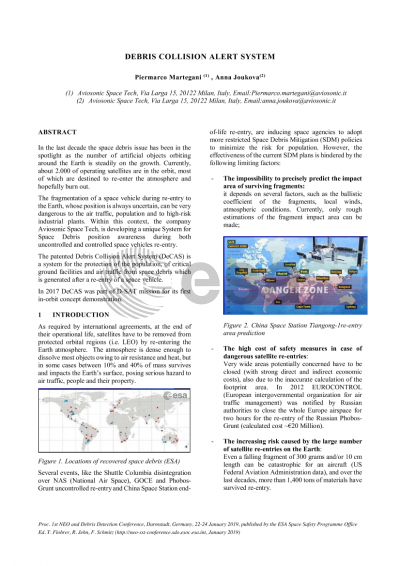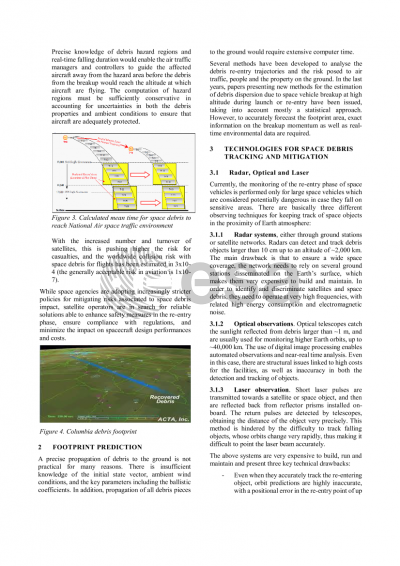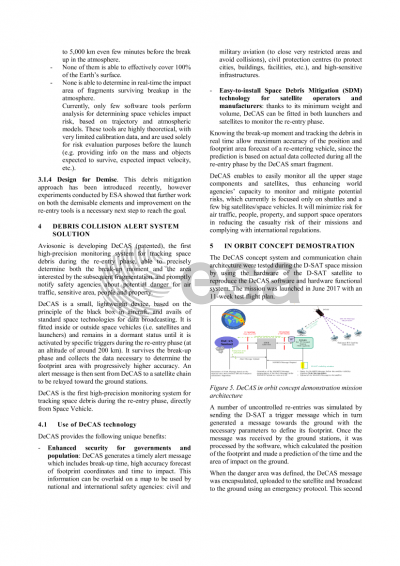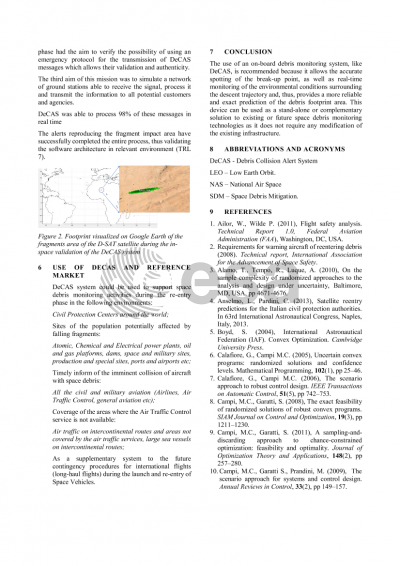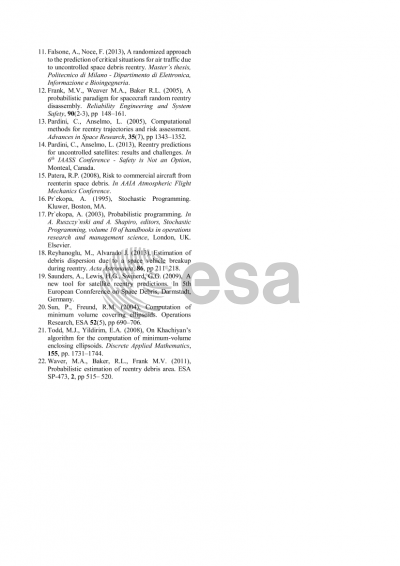Document details
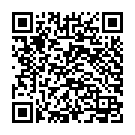
Abstract
DeCAS project by Aviosonic Space Tech
DeCAS (Debris Collision Allert System) is an on-going project by the Italian innovative start-up company Aviosonic Space Tech.
The aim of this project is to develop the pioneer technology addressingthe issue of satellites’ re-entry risk mitigation through the introduction of the on-board debris tracking management.
DeCAS is a small, lightweight, high-precision monitoring device which avails itself of the already qualified space technologies for break-up survival and data broadcasting.
It is fitted into or on the vehicle during the construction phase and remains in a dormant status until it activates at the moment of fragmentation of the spacecraft in the Earth atmosphere, and starts sending information about the space debris area.
The uniqueness of our system is based on the original patented idea to track “from the inside” the fragments produced after the break-up of the space vehicle, as opposite to all currently adopted tracking systems. In this way, the DeCAS “smart fragment” follows the evolution of the debris cloud and provides valuable data. Moreover, DeCAS technology can be complementary to all the existing and emerging approaches in the domain of on-orbit and re-entry risk mitigation management.
The core technological advancement is represented by two factors: re-entry technologies and proprietary algorithms which are able to generate an accurate, hands-on graphical projection of the dangerous area in real-time, timely notifying Safety Agencies about the dangers for air traffic, people and properties. In this context, it is to be pointed out how the impact of even a 300- gram debris with an aircraft can result in a catastrophic event. With the increased number and turnover of satellites, this is pushing higher the risk for casualties for the air traffic, overpassing by far the acceptable risk of vulnerability for commercial air aviation, currently assessed at 1x10-7. For the sake of example, during the Columbia catastrophic break up event this risk factor dramatically went up to 1x10-4.
The DeCAS system has been extensively tested with reference to system architecture and software computational performances during the In-Orbit demonstration in the framework of the D-SAT space mission in 2017. By using D-SAT satellite systems to simulate DeCAS hardware and software operation, Aviosonic was able to process 98% of the messages in real-time, which were afterwards encapsulated into Multiple Alert Message Encapsulation (MAMES) protocol as defined by ETSI (European Telecommunications Standards Institute), and thus successfully validated.
In 2019 Aviosonic will participate with the DeCAS project in the ION mission by D-Orbit. The target is to validate DeCAS operation on board of commercial satellites.
Preview
